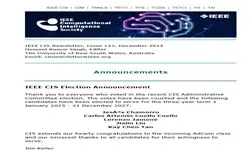Interaction and Experience in Enactive Intelligence and Humanoid Robotics
Chrystopher Nehaniv
-
Members: FreeCIS
IEEE Members: Free
Non-members: FreeLength: 01:03:29
16 Apr 2013
Abstract: We overview how sensorimotor experience can be operationalized for interaction scenarios in which humanoid robots acquire skills and linguistic behaviours via enacting a "form-of-life''' in interaction games (following Wittgenstein) with humans. The radical enactive paradigm is introduced which provides a powerful framework for the construction of complex adaptive systems, based on interaction habit, and experience. Operationally, sensorimotor and internal variables and temporal extended flow of values over these provide raw information-theoretic sources serving as a uninterpreted experience in interaction with the physical and social environment that drive self-structuring of enactive intelligence. Enactive cognitive architectures (following insights of Varela, Thompson and Rosch) support social learning and robot ontogeny by harnessing information theoretic methods and raw uninterpreted sensorimotor experience to scaffold the acquisition of behaviours. The success criterion here is validation by the robot engaging in ongoing human-robot interaction with naive participants who, over the course of iterated interactions, shape the robot's behavioural and linguistic development. Engagement in such interaction exhibiting aspects of purposeful, habitual recurring structure evidences the developed capability of the humanoid to enact language and interaction games as a successful participant. Examples from our lab illustrate application of these methods to achieve sensorimotor self-organization, ontogeny of socially contingent interaction and non-verbal behaviour switching in human-robot scenarios, as well as the acquisition of linguistic behaviours including development of a grounded, child-like two-word stage and forms of linguistic negation in interaction with human participants.


